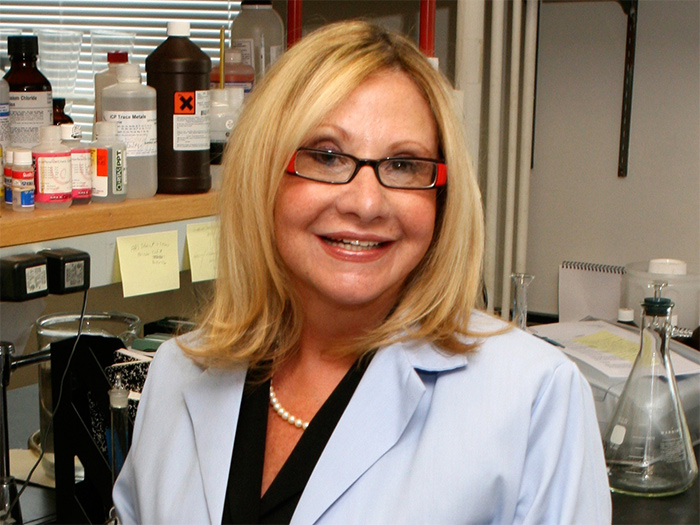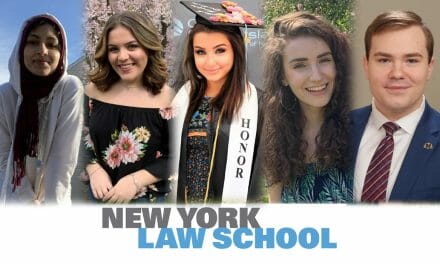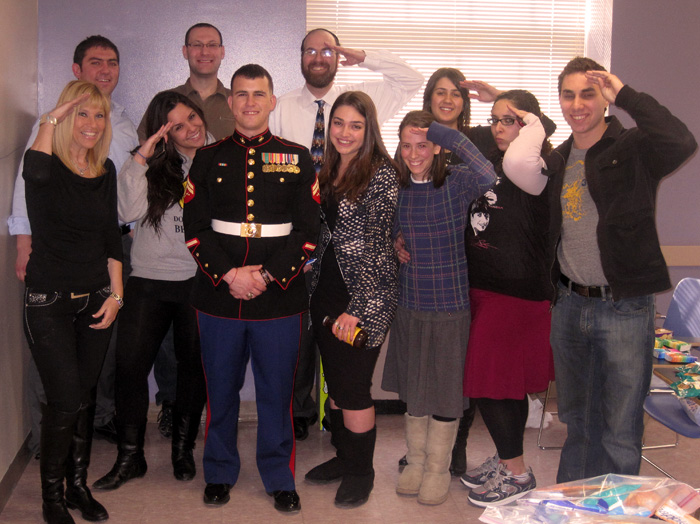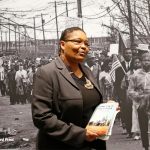From her office in the Biological and Chemical Sciences Building (6S), Donna Gerstle has been extremely busy. Currently, Gerstle, who received a Master’s degree in Elementary Education in 1981 and a Master’s degree in Environmental Science 1984 from CSI, and recently a law degree from New York Law School, is the Director of the College’s Center for Environmental Science (CES), Deputy Chair of the Environmental Science Master’s program, and Principal Investigator and Director of the Staten Island Breast Cancer Research Initiative (SIBCRI).
View the carbon neutral interactive edition of Eye on CSI.
Recalling how it all began, Gerstle says, “I started as a graduate student in Environmental Science and was awarded my first grant from the New York State Department of Health for a half million dollars to study Air Pollution and Lung Cancer on Staten Island. In 1995, we started the Center for Environmental Science (CES) where I served initially as Associate Director, and now Director. Finding high lung cancer death rates led us to examine breast cancer death rates and the Staten Island Breast Cancer Research Initiative evolved.
Battling Breast Cancer
Staten Island has one of the highest breast cancer death rates in the state and the highest death rate in New York City. So, in response, Gerstle and her fellow researchers (Alfred Levine, Interim Dean of Science and Technology; and Jimmie Fata, Assistant Professor of Biology) at the SIBCRI are working diligently to discover what is causing this epidemic and to educate the community about this disease.
According to Gerstle, the SIBCRI is examining breast cancer on three fronts: “The first is an epidemiological case-control study, which looks at female mortality due to breast cancer on Staten Island from 1980 to 2006. Researchers will examine lifestyle and risk factors. The second is to evaluate how environmental factors actually influence breast tissue development. Mammary tissue will be exposed to a set of known environmental carcinogens that exist in the Staten Island air. Finally, we are doing a community-based outreach breast cancer educational program that will work with health care providers, community-based organizations, elected officials, and schools.”
At present, Gerstle reports that she and Dr. Levine are examining obituary information from the Staten Island Advance. “The daily obituaries in the Staten Island Advance provide accurate life history information for our female subjects. We are able to obtain residence, occupation, and educational histories that are both reliable and publicly accessible.”
In addition, Dr. Fata has begun to examine breast cancer tissue samples in his lab, looking at environmental chemicals found in the Staten Island air and their effect on mammary tissue.
Gerstle notes that “Dr. Michael Kress (Vice President for Technology Systems) is taking care of all of our computer needs, as well as serving as an advisor in the development of our databases.”
CSI students are also a part of the SIBCRI, joining the large group of about 20 scientists, attorneys, sociologists, educators, experts from the New York City and State Health Departments, and three physicians who are all part of the effort.
Gerstle says that many of the graduate students in the Environmental Science Master’s program participate in important aspects of the breast cancer research. Their projects include, but are not limited to, risk factors in relation to breast cancer, such as parity, length of residence on Staten Island, and questionnaire development.
Working for a Cleaner Community
Beyond her breast cancer research, Gerstle is also striving to take on the Borough’s environmental problems under the auspices of the Center for Environmental Science. Just as her SIBCRI studies are multifaceted, so are her environmental projects. “Our students, as well as myself, at the Center have been involved in water pollution research. Most recently we have looked at nitrogen in the waterways of New York. At CES we are committed to active involvement in the environmental justice movement. In May 2009 we sponsored a conference entitled “Environmental Justice: History, Issues and Outlook.”
Gerstle notes, “CES is a place where the Staten Island community can come and ask questions. CES has been a community resource for over 20 years now.”
Gerstle has also been a New York State Commissioner with the Interstate Environmental Commission, which is a tri-state governmental agency with regulatory powers in water, for 32 years.
Putting It All into Perspective
As Gerstle juggles a vast number of duties and titles at CSI and beyond, she reflects positively on the education that she received at the College. “My CSI education, has led me to be able to do this important work. My professors in Environmental Science, through an interdisciplinary approach, engaged me in taking a systems approach to research. My greatest gift from CSI is my Master’s degree in Environmental Science, because it opened up an entire new world.”
Her invaluable work has gained a lot of attention. Recent awards and recognitions include honors from the New York City Council as a Woman in History by Council Speaker Christine Quinn (March 2009), recognition from the CSI Athletic Association for breast cancer work, and she was honored by her law school last year as a woman in Environmental Science.
In her busy life, obviously, Gerstle’s professional life has its ups and downs. On the positive side, she points out that “my job is different every day. So many people ask me what I do and every day there’s something different. It can be going to the Health Department to work with data, it can be looking at death certificates, it can be meeting with citizens, it can be meeting with the American Cancer Society, and it can be meeting with elected officials… It’s never the same…It’s always exciting. I think the most rewarding thing for me is having the honor to actually be able to work in cancer research and hopefully be able to get us a step closer to finding a way to prevent breast cancer.
The most challenging part of her life, according to Gerstle, is “coming up with new and different ways to do things very inexpensively. The science is easy compared to getting the money. That’s difficult…”
What does the future hold for Gerstle and her research? “Hopefully, continued funding of SIBCRI will enable us to shine a light on the health challenges that New York City women face and the reassurance that one day we will have a better understanding of the promotion and development of breast tumors.”
















